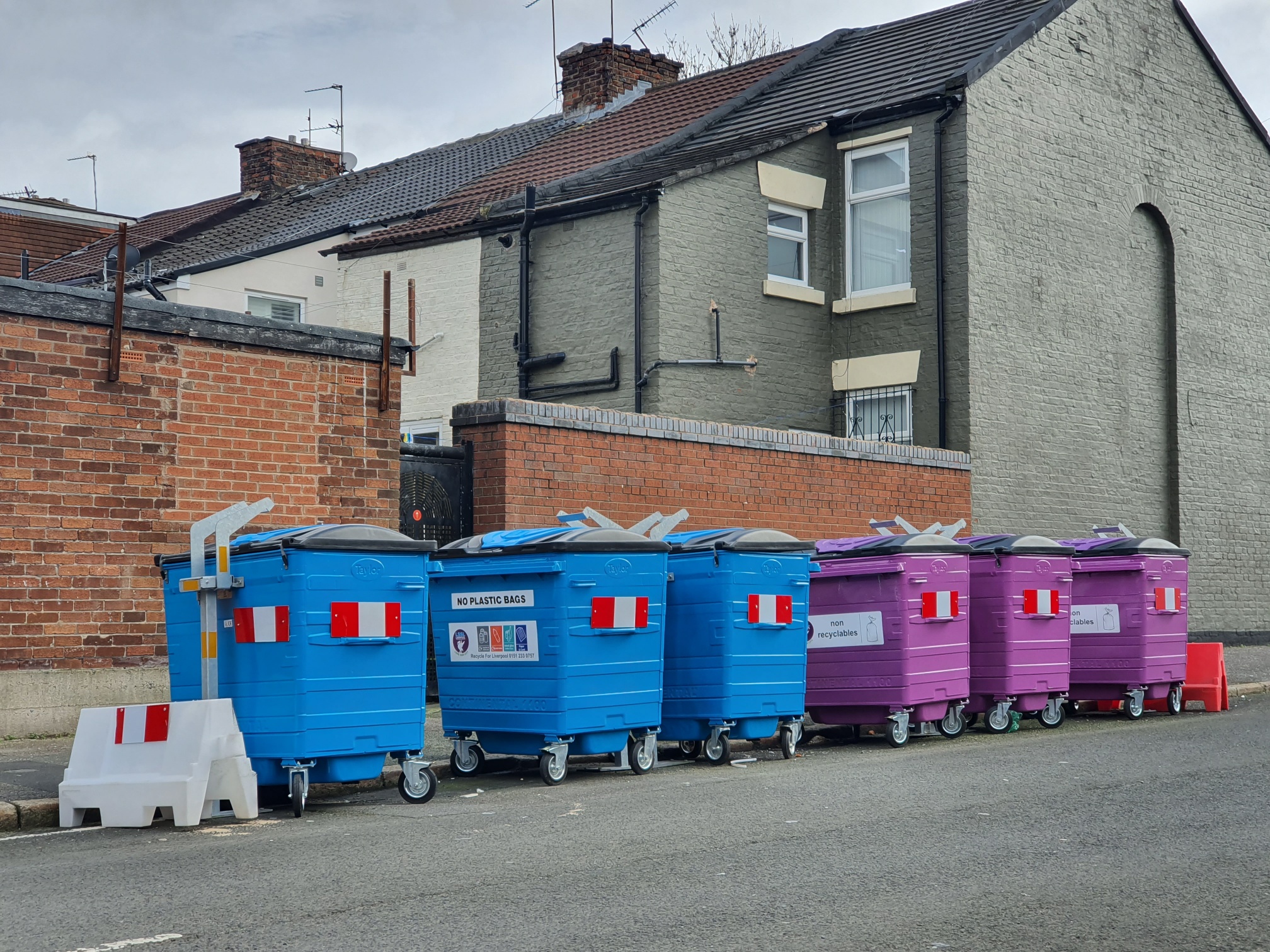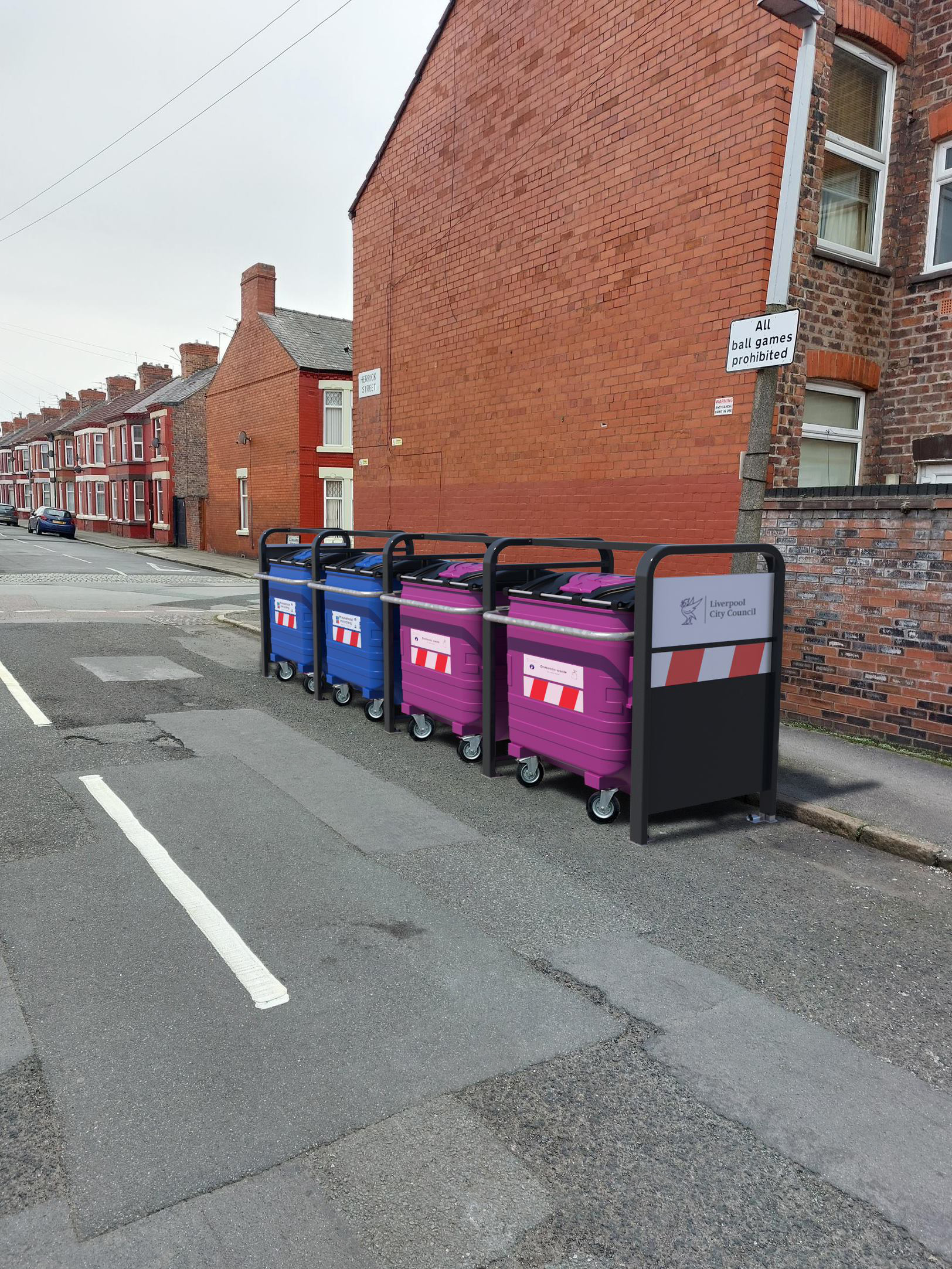The built environment in many of the older or more densely developed parts of our cities could pose a significant obstacle to capturing clean recycling from every household as required by the Environment Bill. We’re often asked why we don’t adopt the continental model in the UK, referring of course to the way householders in many other countries take their refuse and recycling to a communal deposit point at the end of the street rather than storing it within the curtilage of their property.
Our answer is that it most certainly can; we think the concept has huge merits, despite the chorus of objections, it won’t work here, etc. And what’s more, it’s working in one City in the UK already. Liverpool is famous for many things, but we think it deserves accolades for another reason as well, namely the successful implementation of communal refuse and recycling points across many of its terraced streets.
A key focus for Liverpool City Council and Liverpool Street Scene Ltd, its wholly-owned subsidiary formed in March 2016 to deliver and improve a range of essential services across the city, has been tackling waste disposal and collection in the narrow Victorian alleyways which run along the backs of thousands of terraced houses – which in recent years have posed a range of issues including problems with arson, fly-tipping, rat infestations and difficulties with refuse collection due to restricted access, all impacting quality of life for residents.
To combat these issues the council have embarked on a huge project to overhaul and refurbish the alleyways, enabling more efficient waste collection through the provision of communal deposit points for terraced streets with no room for wheelie bins. During the initial stage of the project, eurobins secured with locking posts were installed at the end of each street, successfully transforming the residents’ behaviour in the way they disposed of their waste and recycling, and at the same time tackling the litter-strewn alleyways which were having an adverse visual impact across the town.

The project so far has seen recycling rates increase by an impressive 200% with most participating areas now achieving a recycling rate above 34%. Dumping of rubbish in the alleyways has ceased and the demand for pest control has dropped significantly allowing residents to reclaim these spaces for other uses. Local community groups are being empowered to maintain the alleyways through a combination of regular communication, hosting events and active social media groups.
Two years on and LSSL are now starting to make the communal deposit points a permanent fixture, updating the installations in terms of safety and effectiveness with a range of solutions depending on the individual site conditions, making them more visually appealing for a lasting improvement to the neighbourhoods and to the residents’ daily lives. They are pioneering the large-scale retro-fitting of underground refuse storage or crane-lifted surface containers wherever feasible, but are also working with partners including metroSTOR to develop a cost-effective solution where the large vehicles cannot operate.
The metroSTOR team have been delighted to participate in product demonstrations recently with one of our SBE Recycling Bin Enclosures, securing 1100L communal bins to reduce arson, antisocial behaviour, bin contamination and side waste while improving highway safety, streetscene appearance and giving opportunities to reinforce recycling messaging.
So a big shout-out to Liverpool City Council and Liverpool Streetscene Services, they deserve recognition for boldly stepping out on this path, which we’re sure we will continue to share as an outstanding example of best practice for decades to come.
Find out more about metroSTOR Bin Housings here!

